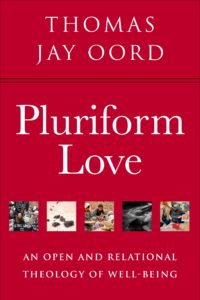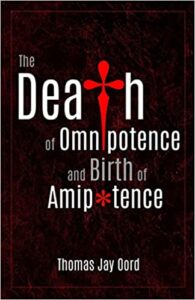Radical “Be It Unto Me” Theology
“Be it unto me,” says the Mary, the mother of Jesus. Or “let it be,” as some translations of Luke 1:38 put it. (Cue the Beatles.) Mary is responding to the angel Gabriel’s announcement of her impending pregnancy.
I believe the story of Mary’s willingness to conceive has great theological import. It portrays God as one who empowers rather than overpowers. It’s an encounter of amipotence rather than omnipotence.
In her consent, Mary becomes an example of what it means to cooperate with uncontrolling love.
Incarnation(s)
Each Advent season, I hear preachers say, “God decided to become incarnate in human form.”
This way of talking can easily be interpreted to mean that prior to being incarnate in Jesus, God was an absentee deity. And it aligns with the idea God occasionally intervenes. The God “out there” came “right here” in the form of Jesus.
It sounds like before this incarnation, God was, at best, sporadically involved and, at worst, not yet involved.
In her book, God Will Be All in All: Theology through the Lens of Incarnation, Anna Case-Winters offers a different perspective. She argues that God is always with creation. God doesn’t intervene sporadically. And the incarnation of God in Jesus of Nazareth was not a one-off.
“The meaning of the Christian theology of incarnation,” says Case-Winters, “has not yet been tapped for its deeper significance in conveying God’s pervasive presence in world process (incarnation in all things)” (38).
I agree with Anna. While I think God’s incarnation in Jesus is special in various ways, it is not altogether unlike how God has always been incarnate. And incarnate in all creation.
Consent
If God is always incarnate, Mary’s “be it unto me” suggests a response to a unique incarnation. Her cooperation with news of her conception is her consent.
In his book, Theology of Consent, Jonathan Foster explores creaturely cooperation in an open and relational universe. “Consent is the depth of love,” says Foster. “And a consensual God empowers us to participate with love in crafting a more imaginative and hopeful way” (8-9).
Foster’s work points to a God whom he says is not “capital O” omnipotent. This God enables, empowers, and inspires without overriding, controlling, or forcing.
As I see it, God needs creation’s consent. The special incarnation of God could not have occurred had Mary, Joseph, Jesus, and others failed to cooperate. For love to win, God needs us.
Amipotent Incarnation
Many have assumed the incarnation of God in Jesus is an example of divine control rather than creaturely consent. God must have overpowered, they say. This assumption is partly why Mary’s literal virginity has been so emphasized, rather than seeing the Mary and Angel story as a theological claim.
Mary’s consensual “be it unto me” is yet another event of evidence that undermines the view God is controlling. And in her cooperation, she becomes a paradigm for what it might mean for us to cooperate with God’s uncontrolling love.
As we celebrate the birth of Jesus, it’s appropriate to give Mary a nod of approval too. And it’s appropriate to be thankful for her response. Her cooperation was essential to God’s special incarnation in Jesus of Nazareth.
While God rightly gets glory at Christmas, Mary deserves our appreciation too.



Comments